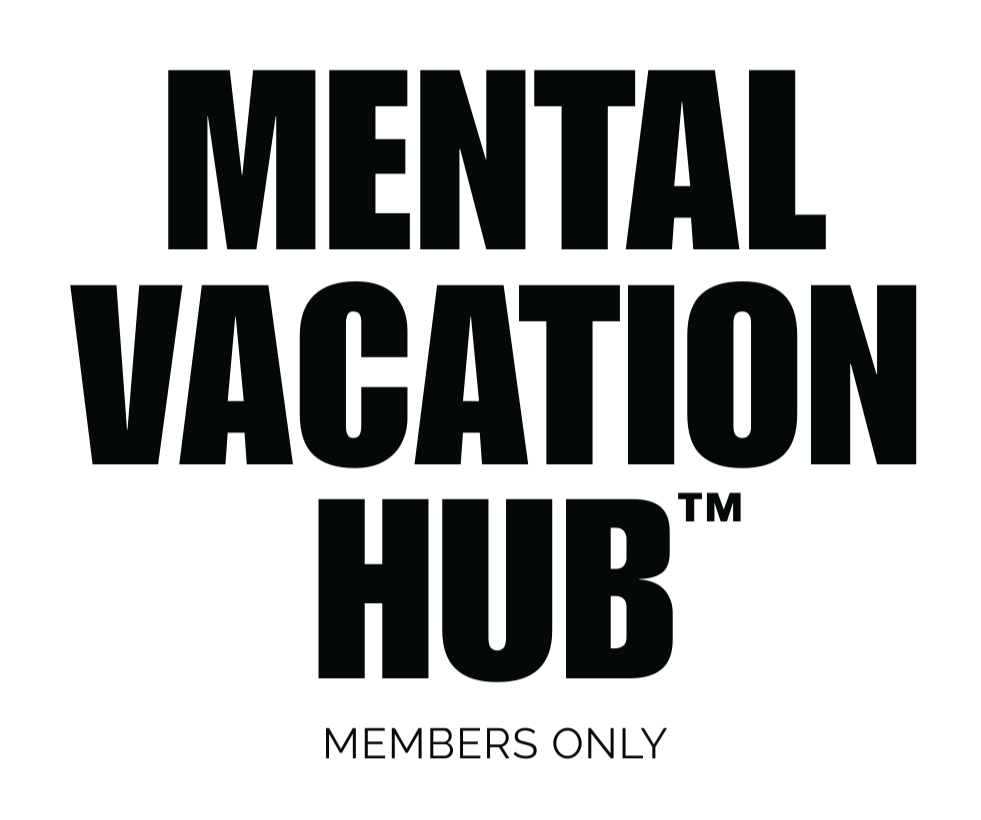Returning to Work After Burnout: Negotiation Strategies
Returning to work after burnout is terrifying.
The conditions that caused burnout might still be present. The fear of relapse is real. You know you can't return to the same patterns, but you don't know how to negotiate different terms.
Most people return to work without negotiating anything.
They're grateful to still have a job.
They're afraid of seeming difficult or uncommitted. They accept the same workload, same hours, same expectations. Within weeks or months, burnout returns because nothing fundamental has changed.
Negotiating different terms isn't optional if recovery is going to last.
It's essential. The organization might not offer accommodations without being asked. You must advocate for what you need. This requires knowing what to ask for, how to frame it, and what scripts to use.
This post covers how to negotiate flexible hours, reduced workload, and role changes when returning to work after burnout, with specific scripts and strategies.
How to Prepare for the Negotiation
Preparation determines negotiation success.
Going in without clarity makes it easy to accept inadequate accommodations.
1.Identify what specifically needs to change.
What caused the burnout?
Was it workload volume, specific responsibilities, lack of boundaries, toxic relationships, or travel demands? Getting specific about causes allows requesting specific solutions.
Vague requests get vague responses.
2. Determine non-negotiables versus preferences.
What must change for sustainable work to be possible?
What would be helpful but isn't essential? Non-negotiables are worth holding firm on.
Preferences can be compromised. Knowing the difference prevents accepting arrangements that won't work.
3. Research company policies and precedents.
Has the organization accommodated similar requests before?
What policies exist around flexible work, reduced hours, or role modifications? Understanding what's already been done makes requests feel less unprecedented. It also reveals what's realistically possible.
4. Document medical support if available.
A letter from a therapist or doctor stating that accommodations are medically necessary strengthens the request.
Organizations are more likely to accommodate medical recommendations than personal preferences.
This documentation also provides legal protection in some jurisdictions.
5. Calculate the financial impact of different scenarios.
If negotiating reduced hours, understand the pay reduction.
If considering a different role, understand compensation changes. Financial clarity allows making informed decisions rather than accepting whatever is offered out of desperation.
6. Practice the conversation.
Rehearse what to say and how to respond to pushback.
Practicing reduces anxiety and increases confidence. It also helps identify weak points in the argument that need strengthening.
Negotiating Flexible Hours
Flexible hours allow managing energy and maintaining boundaries without reducing total work time.
Frame flexibility as performance enhancement. Position flexible hours as supporting better work quality rather than accommodation for weakness. Research from Harvard Business Review shows that flexible work arrangements often increase productivity and reduce turnover.
Propose specific arrangements rather than vague requests. Instead of "I need flexibility," say "I'd like to work 7 AM to 3 PM instead of 9 AM to 5 PM to manage energy better." Specific proposals are easier to approve than open-ended requests.
Offer a trial period. Suggest trying the arrangement for three months with evaluation afterward. Trial periods reduce organizational risk and make approval easier.
They also allow adjusting if the initial arrangement doesn't work.
Script for Flexible Hours
"I'd like to discuss adjusting my work hours to support sustainable performance. Based on my recovery, I work most effectively from 7 AM to 3 PM. I'm proposing shifting my schedule to these hours for a three-month trial. This would maintain my full work hours while optimizing when I'm most productive. Can we try this arrangement and evaluate after three months?"
Address concerns proactively.
If the organization worries about availability, propose core hours when you'll always be available. If they worry about team coordination, suggest communication protocols. Addressing concerns before they're raised makes approval easier.
Be prepared to compromise on details. The exact hours might need adjustment based on team needs.
Flexibility on details while holding firm on the core request often leads to workable solutions.
Negotiate Your Workload, Role, and Next Steps
When Your Workload Is the Problem
Asking for less work feels like admitting defeat, but it's not.
It's being realistic about what your brain and body can actually handle right now. The key is showing your manager this isn't about weakness. It's about math. You're managing 15 projects and you can sustainably manage 10.
Come prepared with numbers. Say something like: "I'm currently juggling 15 projects, but based on what I've learned about my capacity in recovery, I can do excellent work on 10. That means five projects need to either be delegated, delayed, or handed off. Which ones matter most to you?"
This reframes the conversation. You're proposing a smarter allocation of resources, and organizations respond to that. They prefer predictable, high-quality output to watching someone slowly implode.
If they push back, be direct about what happens if nothing changes.
Tell them: "I want to be honest. If the workload stays at 15 projects, I'll burn out again within months. I'd rather have this conversation now and find a solution together." Sometimes that honesty opens doors. Sometimes it doesn't, but at least you know where you stand.
You could also suggest ramping back up slowly.
Start at 10 projects for three months, then maybe move to 12. That shows you're committed to returning to full capacity eventually, it's just not happening overnight.
Most managers appreciate that because it signals you're not trying to permanently reduce your contribution.
When the Role Itself Is Killing You
Sometimes the problem isn't the amount of work.
It's the type of work. Maybe you hate client calls, or you're drowning in meetings, or the travel is destroying you. That's different from workload. That's a role problem, and it requires a different approach.
Before you ask for a different role, do your homework.
What positions exist in your organization that don't have your burnout triggers? Is there a strategy role, an operations role, something behind the scenes? Know what you're asking for before you walk into the conversation. This matters because vague requests get vague responses.
When you pitch it, don't say "I can't do this anymore."
Say "I think I'd be more valuable here" and point to your strengths. Something like: "I'm really good at analysis and strategy, so I think I'd do better work in the strategy team than I'm doing in client management."
You're not stepping down. You're moving to where you can actually excel, and that's a completely different message.
Acknowledge that this creates work for your manager.
Tell them: "I know this means finding someone for my current role and bringing them up to speed. I'm willing to do whatever handoff you need to make this smooth." People appreciate that because it shows you're not just thinking about yourself. Role changes take time anyway. Your manager might say yes but tell you it'll happen in six months. That's okay.
At least you know it's coming, and you're working toward something instead of just surviving.
When They Say No
Not every organization will say yes.
Some will dig in their heels, and when that happens, you need a plan.
First, ask why. Say: "I understand you can't accommodate this right now. Can you help me understand what the barriers are?" Maybe it's budget, maybe it's coverage, maybe it's politics. Understanding the real reason helps you figure out if there's a workaround or if you're just stuck.
If it's a timing issue, ask when you can revisit it.
"Can we talk about this again in three months?" keeps the door open without putting pressure on them. But here's the hard part: if they won't budge on essential accommodations, you have to ask yourself if staying is actually safe. If you need reduced hours to not burn out again, and they won't give you reduced hours, you're going to burn out again.
Before you quit, explore other options.
Are there other teams or departments that might work? Could you transfer internally? That's usually easier than finding a new job. If nothing works, start planning your exit. Build up some savings, update your resume, and network. You don't have to leave tomorrow, but you shouldn't stay somewhere that's going to destroy your recovery.
Leaving on your own terms is infinitely better than leaving in crisis.
Before You Have Any Conversation
Know your non-negotiables before you negotiate anything.
What absolutely has to change? What would be nice, but you could live without? If you're clear on that, you won't accidentally accept something that doesn't actually help you.
Also, be real about what you can compromise on. Maybe you want to work 7 AM to 3 PM, but you could live with 8 AM to 4 PM if it means you get the arrangement approved. Know where your flexibility is.
Document everything after you talk to your manager.
Send an email that says: "Just to confirm what we discussed: I'll work 7 AM to 3 PM starting [date], and we'll evaluate in three months." Written confirmation prevents misunderstandings later and protects you if someone claims the agreement never happened.
The bottom line is that you're not asking for a favor. You're asking for conditions that let you do your job sustainably.
That's reasonable. If your organization can't provide it, that's information you need to have.
Frequently Asked Questions
Should you negotiate before or after returning to work?
Before returning is ideal. Negotiating accommodations as part of the return-to-work conversation is easier than requesting changes after already being back. It also prevents returning to unsustainable conditions even briefly. However, if you're already back at work, it's never too late to request accommodations.
What if the organization says accommodations aren't possible?
Ask for specific reasons why not. Sometimes concerns can be addressed with modified proposals. If accommodations truly aren't possible and they're essential for sustainable work, consider whether staying is safe. Returning to burnout-causing conditions without changes usually leads to relapse within months.
How long should accommodations last?
This depends on recovery needs. Some people need temporary accommodations during active recovery. Others need permanent changes to prevent relapse. Be honest about whether accommodations are temporary or permanent. Organizations are often more willing to accommodate temporary arrangements.
What if negotiating makes the organization question your commitment?
Frame accommodations as supporting long-term sustainable performance rather than reduced commitment. Emphasize that the goal is preventing relapse so you can contribute effectively for years rather than burning out again in months. Organizations benefit from sustainable employees.
Can you negotiate accommodations without disclosing burnout?
Yes. Frame requests around performance optimization, work-life balance, or professional development rather than medical recovery. However, medical disclosure sometimes provides legal protections and makes accommodations easier to obtain. Weigh the benefits and risks of disclosure based on organizational culture.
Take Control of Your Return to Work
Returning to work after burnout recovery requires negotiating different terms to prevent relapse.
Preparation includes identifying what needs to change, determining non-negotiables, researching policies, documenting medical support, calculating financial impacts, and practicing the conversation.
Negotiation strategies include requesting flexible hours framed as performance enhancement, reduced workload quantified with specific proposals, and role changes positioned as leveraging strengths differently.
Handling pushback requires listening to concerns, offering solutions, knowing walkaway points, documenting agreements, and being prepared to leave if necessary.
If requests are denied, ask for specific reasons, request future review, assess role sustainability, explore internal options, and plan an exit if needed. Sustainable return to work requires conditions that support recovery. Negotiating these conditions isn't optional.
It's essential for preventing relapse and building a sustainable career.
Read also: Mental Health America - "I need accommodations at work in recovery
Learn More About Burnout
Ready to recover? Get Your Burnout SOS Handbook:

Burnout SOS Handbook: Practical steps to understand, survive, and recover from your burnout. Easy to follow - just right for a brain-fogged head. Start your healing today!
Take the Burnout Test
Our 5-minute Burnout Test cuts through the confusion and gives you a personalized snapshot of where you stand and what comes next.
Start the test →





